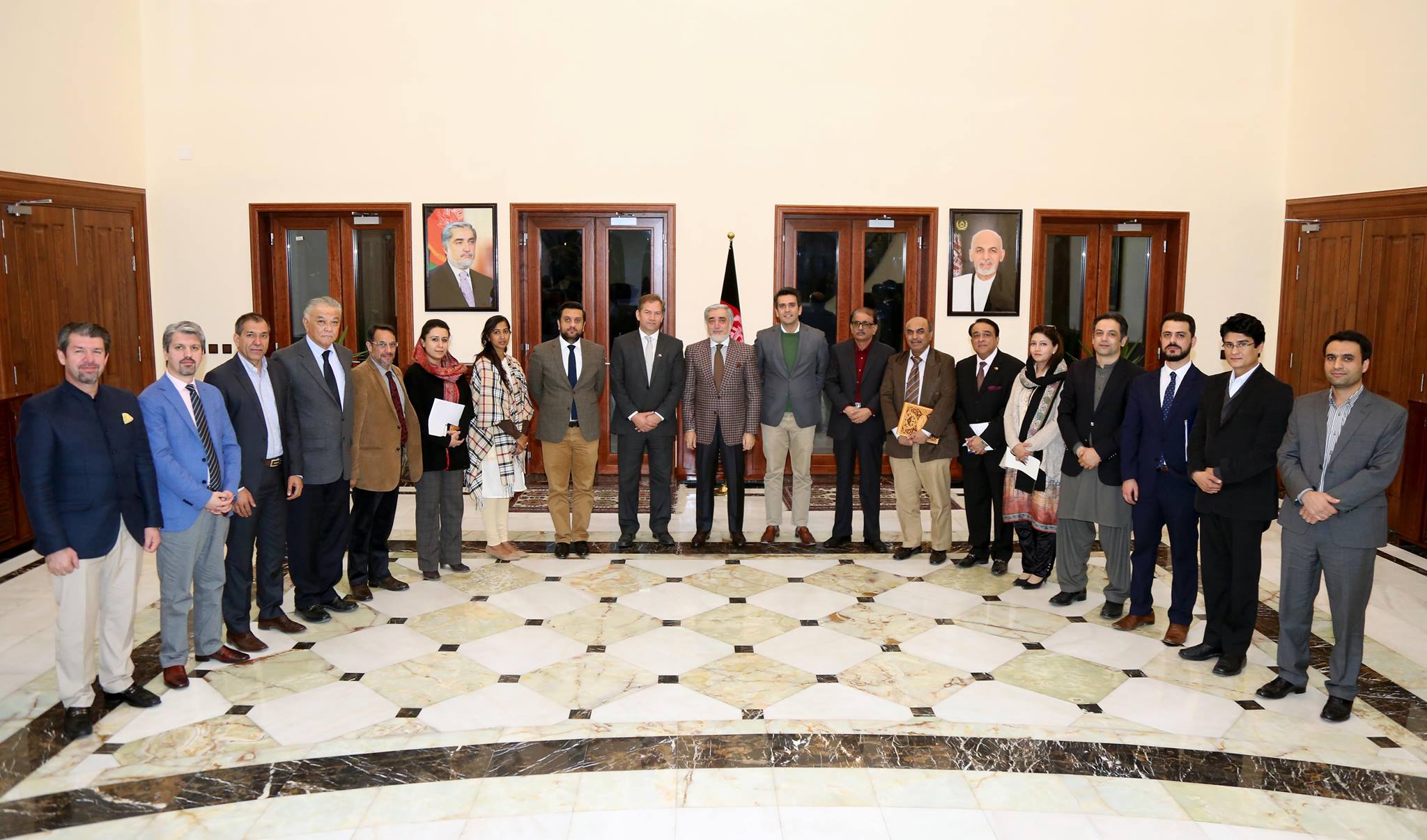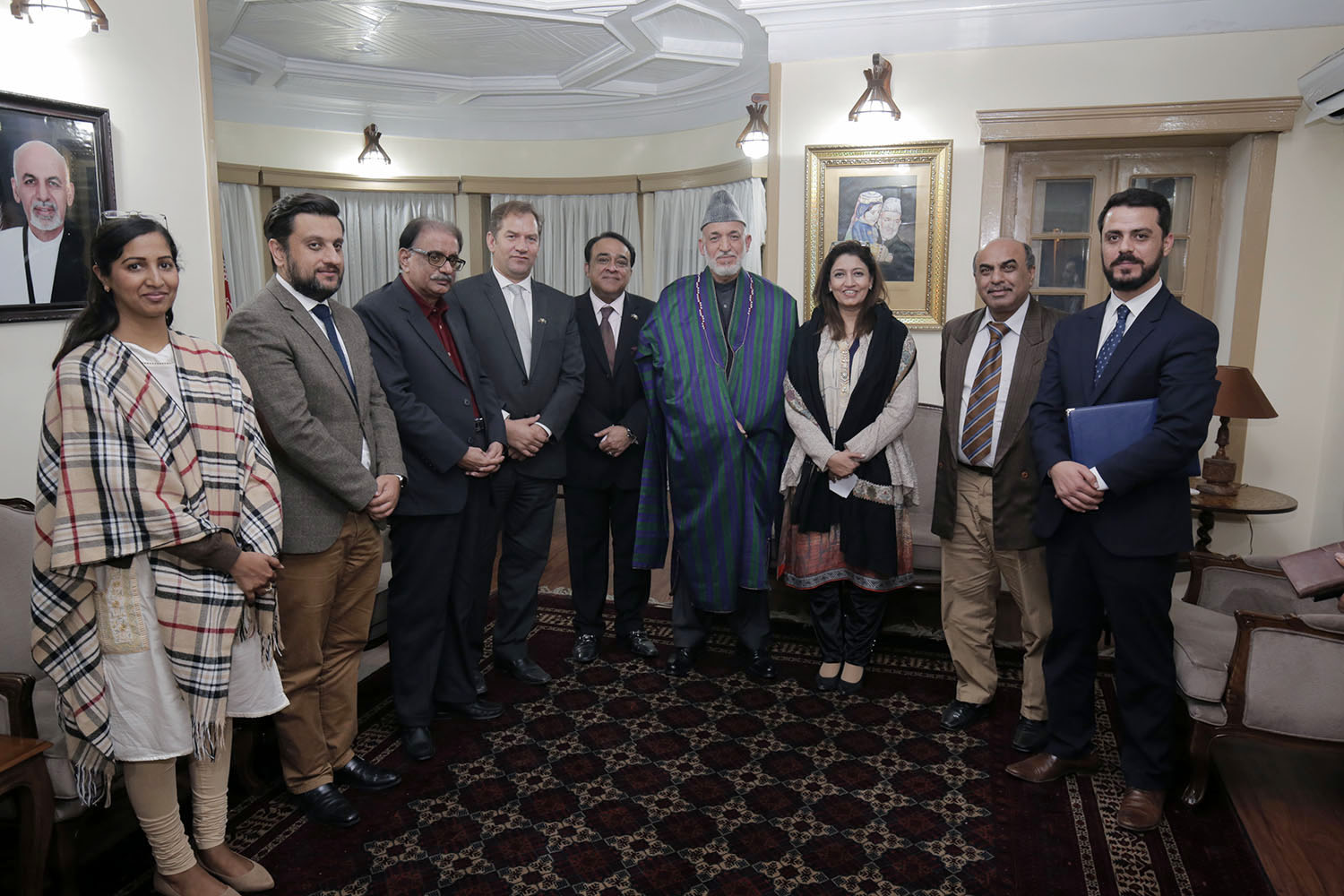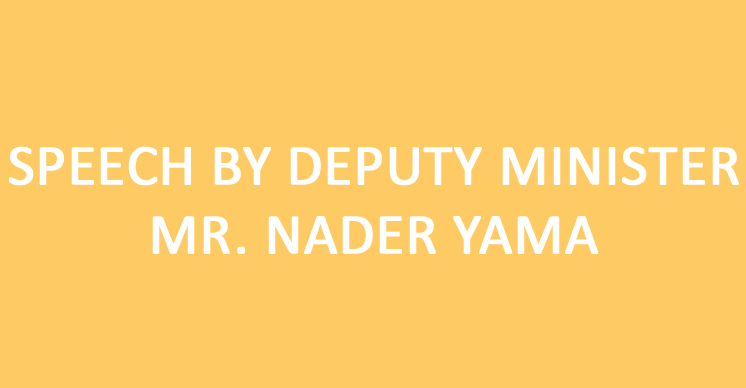The second round of meetings between Pak-Afghan Regional Civil Society working groups – as part of CRSS-FIDA-DURAN project, Beyond Boundaries; Pak-Afghan track 1.5/ II initiative – was held in Kabul from December 02-03, 2015. This workshop was a follow up to the first meeting held under the same initiative in Islamabad from November 09-10, 2015.
The inaugural session was chaired jointly by Mr. Fahim Dashty, Chief Executive of Afghanistan National Journalists Union, and Mr. Kawun Kakar, Managing Partner of Kakar Advocates. The chief guests were H.E. Karen Pierce, Ambassador of United Kingdom, and H.E. Sayed Abrar Hussain, Ambassador of Pakistan.
The two day workshop of Pak-Afghan Regional Civil Society Working Groups included deliberations on the following themes:
- The Narratives – Continuing the Conversation
![]() Role of Civil Society in Shaping Narratives
Role of Civil Society in Shaping Narratives
![]() Afghan People’s Dialogue on Peace – Building the Foundation for an Inclusive Peace Process
Afghan People’s Dialogue on Peace – Building the Foundation for an Inclusive Peace Process
![]() Women Empowerment in Afghanistan
Women Empowerment in Afghanistan
- Trade and Economic Cooperation
The session on the narratives was chaired by Mr. Parwiz Kava, Editor in Chief, Daily 8AM. It included presentations by Mr. Nadir Yama, Deputy Minister, Independent Directorate of Local Governance and Member of Hamdeli Network on the role of Civil Society in Shaping Narratives, and Ms. Samira Hamidi, WG member from Afghanistan side on Afghan People’s Dialogue on Peace – Building the Foundation for an Inclusive Peace Process and Women Empowerment in Afghanistan.
Mr. Nadir Yama emphasized on cultural exchange for creating empathy, acquaintance, build trust and create a conducive environment for concrete steps for peace building and added, “There are so many good stories of people to people. Just telling these stories will create empathy and awareness. To discuss the peace talks, we need culture of peace to be promoted and enabling environment. Our aim should not be only political side of it, but the actual peace process, peace culture and promoting both countries’ common values.” He further noted, “They need to reach the stage where the people of both sides become the true advocates for each other. We need to find and give this platform a name that would attract others and already create that vision and give people direction, as we did for Hamdeli. To join and be part of it, Hamdeli network can work on the innovative cultural exchange programs”.
Participants also got the opportunity to discuss key civil society initiatives within Afghanistan. Ms. Samira Hamidi gave a presentation to the group about the on-going “Afghan People’s Dialogue on Peace”. She shared that as a result of this national consultative process, a call for action has been drafted and a report of the process was officially submitted to the National Unity Government leaders in January 2015 and shared with the Taliban in Qatar in May 2015. The proposed strategy calls for strengthening security institutions, promoting rule of law and human rights with an emphasis on women empowerment, supporting community-based dispute resolution mechanisms and calling for inclusiveness in the peace process.
The second day of the workshop included a full session with discussions on the “Trade and Economic Cooperation”, chaired by Mr. Hamid Saboory, Political Analyst and included presentation by Ms. Najlla Habibyar, CEO Howdah Group and Former Director, Export Promotion Agency of Afghanistan. In her presentation, she noted that Afghanistan is a member of several regional organizations such as the Economic Cooperation Organization (ECO), Central Asia Regional Economic Cooperation (CAREC) and South Asian Associated for Regional Cooperation (SAARC). Due to its strategic position, it can act as a key player to link the Central and South Asian region – a partnership which can create immense economic opportunities for the region. She said that the 2010 Afghanistan-Pakistan Transit Trade Agreement (APTTA) provides a facilitating mechanism for Transit Trade for Afghanistan as well as a gateway for Pakistan for the transit trade to Central Asia. Regional cooperation can be enhanced through measures such as easing visa restrictions, instituting harmonized custom procedures, linking countries through common regional infrastructure as well as by scaling up the level of intra-regional trade and transit.
The two-day talks ended with a Joint Declaration of the Regional Civil Society Groups, which among other issues, calls on both governments to meet targets set in the most recent Joint Economic Commission meetings in Islamabad. During the concluding session on Day Two to formulate joint declaration of policy recommendations, a presentation on “Afghan Civil Society Ten Point Road Map for Peace”, was given by Afghan WG member, Mr. Ahmad Fahim Hakim.
The Joint Declaration is reproduced below:
- Civil society on both sides unanimously condemns all acts of terrorism in either side of the border.
- Both sides affirmed that civil society representatives should act and talk independently, representing their own views as members of civil society and the aspirations of their respective nations.
- Civil society of both countries urges their respective governments to prioritize security and peace as a key milestone in providing conducive environment for mutual cooperation.
- Both countries shall strive to review their educational curriculum in order to raise the new generation of both Afghans and Pakistanis, promoting peace education, civic education, tolerance and peaceful co-existence.
- Both Afghan and Pakistani civil society organizations are committed to transforming the prevailing negative narrative in respective countries by increasing people to people and civil society exchanges and confidence building measures.
- A realization of the importance of emphasizing that peace is essential to the region and civil society and other non-state actors in both countries will continue to promote dialogue on peace.
- In keeping with UN Security Council Resolution 1325, and following resolutions, we jointly re-affirm our commitment to ensure the equal representation of women in all delegations working towards peace, including civil society groups, youth, media, political representation and government representation.
- Civil society in both countries urges their respective governments to collaborate on the implementation of their international and mutual commitments under bilateral and multilateral conventions and treaties.
- On the educational collaboration front, the civil society in both countries urges their governments to develop a comprehensive and transparent program for scholarly exchange between two countries. These include, scholarships (up to PhD level), visiting scholar programs and alumni networking on both sides.
- Economic cooperation is the best way forward for cementing ties. Trade forms a common link between the two countries.
- The civil society urges both respective governments and other stakeholders to take concrete steps towards supporting key connectivity related infrastructure projects and meet targets set by both governments in the recent (Nov 23-24) Joint Economic Commission meetings in Islamabad.
- The civil society of both countries urges their respective media to promote a culture of peace and contribute to transforming the negative narrative as a multiplier of the peace process.
- It is recommended that human rights be protected of Afghan Refugees with special emphasis on facilitating their voluntary repatriation to their homeland.
The visit of Pakistani Civil Society Working Group to Afghanistan included high profile meetings with Afghanistan’s Chief Executive Dr. Abdullah Abdullah, and Former Afghan President Hamid Karzai as part their agenda for the Kabul visit.
During the meeting of Pak-Afghan working groups with Dr. Abdullah Abdullah, Dr. Huma Baqai, Pakistani Delegate briefed him about the Beyond Boundaries initiative and Mr. Barry Salaam, Afghan Delegate briefed him about the meetings of Regional Civil Society Working Groups held so far.
Dr. Abdullah Abdullah welcomed both the civil society groups and said, “I am happy to receive you in Kabul. It is a very important and extremely valuable endeavor that you have undertaken. The fact that both civil societies have set aside the political differences to take such initiative is very heartening. From our side I assure you of our full support, we will be there with you, and on our end will facilitate this initiative. We will also continue to make sincere efforts to make better relations between the governments of Afghanistan and Pakistan”.
Both the working groups presented the joint declaration to Afghanistan’s Chief Executive. He thanked the two working groups for sharing the policy recommendations and assured full support from the government of Afghanistan.
In the meeting of Pakistani WG with Afghanistan’s Former President, Mr. Hamid Karzai, Mr. Aized Ali, Project Director Beyond Boundaries briefed him about the initiative and the two rounds of working groups’ meetings held so far. The Pakistani delegates thanked the former president to take time to meet with them at his residence and had a detailed discussion about the role of civil society and media to promote peace and improve Pak-Afghan bilateral relations. They also presented to him the joint declaration of policy recommendations.
Mr. Karzai said: “I welcome the Pakistani civil society and media leaders to Afghanistan. You have taken up a very timely initiative, my support and best wishes are there for you. Pakistani and Afghani people are brothers and the warmth, respect, and love is mutual. On people level there are no differences. I wish you success in your efforts of building people to people contact and civil society linkages, and will welcome you all again and again with open arms and loving eyes. Please convey my love to the people of Pakistan, when you go back”.
The visit also included media interactions of the visiting delegates with both print and electronic media.







